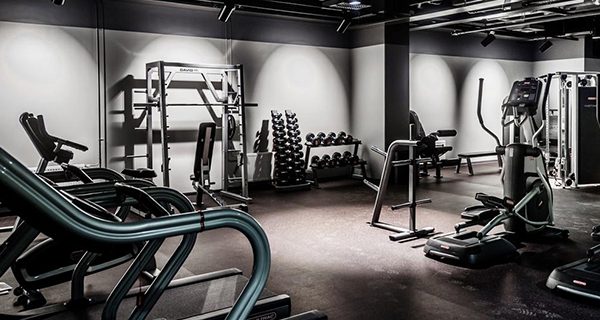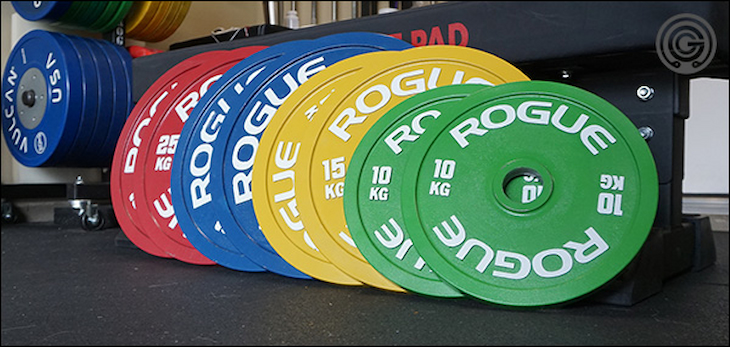12
May

Opening a gym is an exciting journey, but choosing the right weight equipment can make or break your success. Whether you want to attract beginners, experienced lifters or athletes, you have to offer a smart and versatile selection of weight gear. This way you’ll have something for everyone.

Having the right type of lifting equipment is a must when you’re opening a gym. You need gear that will suit all the needs of all types of users, from beginners to advanced gym-goers. Having durable and user-friendly weights is an investment worth making because gym members often judge the gym by their variety. It can build up your reputation quickly. Another big plus is that when you have the right gear, people are more prone to staying motivated, making progress, staying happy, and, of course, renewing their membership.
This type of gear is the soul and the base of every gym. They’re one of the most versatile pieces because of the many natural movement patterns they allow. They also stabilise the muscles so they can work harder and improve people’s balance and coordination.
Dumbbells are a very popular choice. You should stock a wide range, starting from 1 kg for beginners or rehab clients up to heavy 50+ kg dumbbells for advanced lifters. The fixed type looks neat and can save your clients some time. Adjustable dumbbells, on the other hand, are more budget-friendly and will save you some space. There are also hex dumbbells with rubber coating that will protect the gym’s floors from damage and reduce the noise.
Barbells are another option. They’re great for big, compound lifts like deadlifts, squats or bench presses. Olympic barbells are a great choice, and pairing them with good-quality bumper plates will give your clients great workout options. In addition, stock a range of weight plates, including fractional plates (as light as 0.5 kg) for members who need to make small but meaningful strength gains.
Kettlebells are a popular option in group classes and functional fitness. They will challenge your clients’ endurance, strength, and balance. They range in weight from 4kg up to 40+ kg, so you can stock up a really good weight range. Having all of these options in your gym will create a dynamic and energetic environment for every client, from beginners to experienced lifters.
Machines are all about structure and safety. They’re ideal for beginners, seniors and people recovering from injury. They reduce the risk of injury caused by bad form because they guide people through the correct movements. Resistance machines make resistance exercise and adjustment very easy. Some of the most popular options are leg press, chest press, lat pulldown and seated row.
Cable machines offer almost endless exercise options. They allow for full-body workouts and give your clients more freedom than traditional machines. Adjustable pulleys cater to different heights and movement angles. Investing in a dual adjustable pulley system can be a game-changer for your gym space.
This type of equipment is useful for people who want to improve their athleticism, their overall fitness and practical strength. Stock your gym with medicine balls. They’re great for explosive movements, rehab work and core exercises. Their weight can vary, and their textured surface provides a great grip.
Slam balls are a fun and intense element to any type of training because they offer a range of exercises. They’re meant to be thrown down hard without breaking. Sandbags are also a good addition. They will challenge people’s strength and stability no matter their fitness goals. Weighted vests and ankle weights add resistance to bodyweight exercises, running, and functional drills. They help people break through strength and endurance limitations.
Having unique equipment makes your gym stand out. It also serves sportsmen and lifters who take their sport more seriously. Smith machines provide guided barbell workouts, including push-ups and squats. They’re great for beginners and people who like to lift heavy weights without a spotter because of the built-in rails. Leg-focused machines like the leg press and hack squat target the lower body with heavy loads. They offer joint support and allow users to isolate muscles more than free weights.

It’s always wise to invest in commercial-grade gear. All weights equipment takes a lot of beating, and any home-use model won’t last long in the gym. Bring in a full range of weights, from lightest to heaviest. Don’t forget about storage such as weight trees, dumbbell racks, kettlebell shelves and barbell holders. Every part of the gym should be neat and organised.
Always go for a reliable brand. Someone who has good ratings. Read the reviews, ask questions and consult with professionals so you can get the best possible gear for your members. Keep cleaning and maintenance in mind. Everything in your gym should be cleaned and maintained regularly, and that process shouldn’t be hard to do.
When filling your gym, try to maintain some balance. Athletes and conventional lifters like free weights. Beginners get confidence from machines. For those aiming for general fitness, functional equipment offers plenty of variation. Give your members a clean path to progression so they can explore and develop their strength and skills gradually.
Floor space is also important. Free weights, for example, need open spaces. They need wider zones to give people freedom of movement. Machines on the other hand, are fixed in one place. Also, make sure you have enough space between each piece of equipment. This way you’ll keep everyone safe and comfortable.